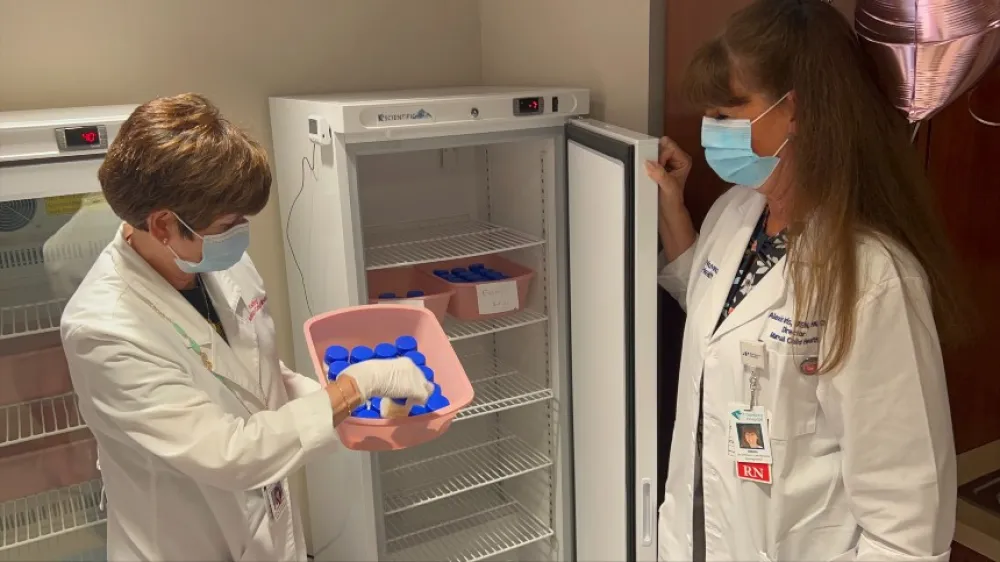Providing your location allows us to show you nearby locations and doctors.
Danbury Hospital expands donor breast milk program to healthy newborns

07/31/2022
When a mother at Danbury Hospital gives birth, she can now choose to use donor breast milk to help her baby thrive.
"While a mother's breast milk is what's best for her baby, sometimes she cannot nurse because of a medical condition, or her milk hasn't come in and the baby's weight may be a concern," said Alexis Curtis, Director of Maternal Child Health at Danbury Hospital. "Donor milk can help bridge that short gap until she's able to nurse or pump."
To provide alternatives to baby formula, Danbury Hospital set up the human milk donor program in the well-baby nursery. The newly launched service comes just in time for Breastfeeding Awareness Month, which begins Aug. 1.
The milk comes from the Mothers' Milk Bank Northeast. Donors are screened. Then, their milk is pasteurized and laboratory tested prior to distribution by the milk bank.
The program mirrors what's been happening in Danbury's Neonatal Intensive Care Unit and NICUs around the country for decades, where donor milk is given to premature infants whose mother's own milk is in short supply.
"Breast milk is liquid gold. It has unique and remarkable nutrients that support the infant's and child's developing immune system," said Kathleen Moonan, an International Board-Certified Lactation Consultant and the hospital's Center for Breastfeeding coordinator. "Donor milk can be especially important for babies in our nursery who are jaundiced, have low blood sugars or low birth weight."
The American Academy of Pediatrics (AAP) supports the use of pasteurized donor milk as a supplement if a mother's own milk isn't sufficient. Danbury Hospital's program further aligns with the AAP guidelines and World Health Organization recommendations that say all mothers should feed their baby's solely with breast milk, exclusive of any other nutritional sources for the first six months of their baby's life.
"We looked at research that showed the use of donor milk in well-baby nurseries is an effective way to increase the hospital's exclusive breastfeeding rate," Curtis said. "It should become a standard of maternity care and we are excited to be a model for other hospitals within our health system and region."
"This is a bridge program," Moonan said. "While the baby is getting donor milk, the mother will be given assistance and practice breastfeeding, do hand expression and pump."
Danbury Hospital's donor milk is stored in a special freezer and refrigerator where it can be readily available for patients in need. All birthing parents receive information about donor milk upon their admission and can discuss options with their care team.
Learn more about maternity services at Danbury Hospital.
Find breastfeeding support at Nuvance Health.

